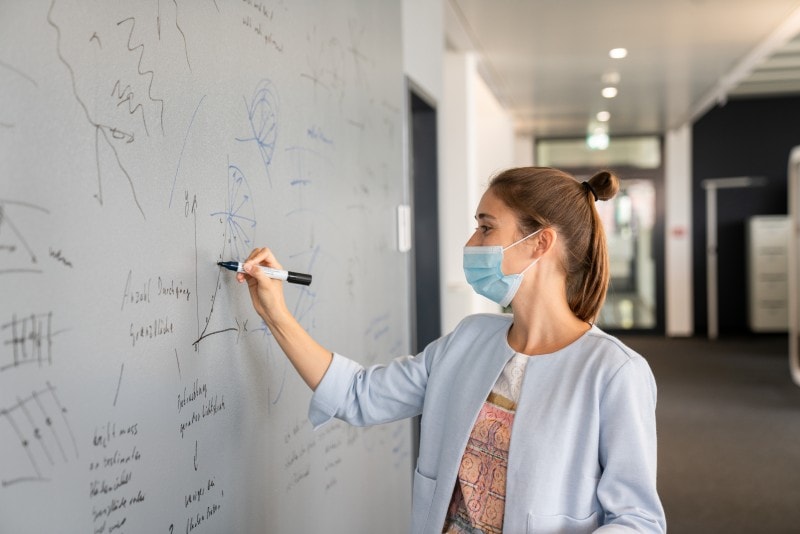What makes the AI Research Team special, in your opinion?
We are a motivated and creative group. The interdisciplinary exchange is super-exciting, and often brings completely new perspectives. And we have a great team spirit, not only in the AI Research Team but in the whole department. We often also offer subjects for academic theses or projects for students in our team. The exchange with universities and start-ups is very important for me personally.
Because you come from a research background?
Yes, before I started in the AI Research Team, I was a doctoral student at the Technical University of Darmstadt, where I did my doctorate in the research field of Natural Language Processing and developed systems for automatic text analysis and multimodal speech understanding. During this time, I attended an international conference where my later colleagues from the Group also presented new research results, and we got talking. I was impressed by the depth of Mercedes-Benz's research into artificial intelligence. .
What makes Mercedes-Benz a good employer for you?
What I personally find great is that here I have the opportunity to implement the results from research in specific applications. Mercedes-Benz is investing a great deal in the future. We have a large innovation workshop where we can build prototypes and simply try out new ideas. After all, research means that sometimes the things that emerge can't immediately be mass-produced. Here we have the freedom to accelerate research into AI.
Finally, we would like to know: What is the must-have in your dream office?
A place for my shepherd dog. She keeps me company in the home office right now, and every video conference with colleagues becomes much more relaxed when she moves into the picture every now and then, to see whom I am talking to (laughs).
,xPosition=0,yPosition=0.5)



,xPosition=0.5,yPosition=0)
,xPosition=0.5,yPosition=0)